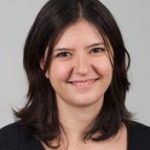Link to Pubmed [PMID] – 24319148
Link to DOI – 10.1093/nar/gkt1259
Nucleic Acids Res 2014 Feb; 42(4): 2366-79
Sub-inhibitory concentrations (sub-MIC) of antibiotics play a very important role in selection and development of resistances. Unlike Escherichia coli, Vibrio cholerae induces its SOS response in presence of sub-MIC aminoglycosides. A role for oxidized guanine residues was observed, but the mechanisms of this induction remained unclear. To select for V. cholerae mutants that do not induce low aminoglycoside-mediated SOS induction, we developed a genetic screen that renders induction of SOS lethal. We identified genes involved in this pathway using two strategies, inactivation by transposition and gene overexpression. Interestingly, we obtained mutants inactivated for the expression of proteins known to destabilize the RNA polymerase complex. Reconstruction of the corresponding mutants confirmed their specific involvement in induction of SOS by low aminoglycoside concentrations. We propose that DNA lesions formed on aminoglycoside treatment are repaired through the formation of single-stranded DNA intermediates, inducing SOS. Inactivation of functions that dislodge RNA polymerase leads to prolonged stalling on these lesions, which hampers SOS induction and repair and reduces viability under antibiotic stress. The importance of these mechanisms is illustrated by a reduction of aminoglycoside sub-MIC. Our results point to a central role for transcription blocking at DNA lesions in SOS induction, so far underestimated.



